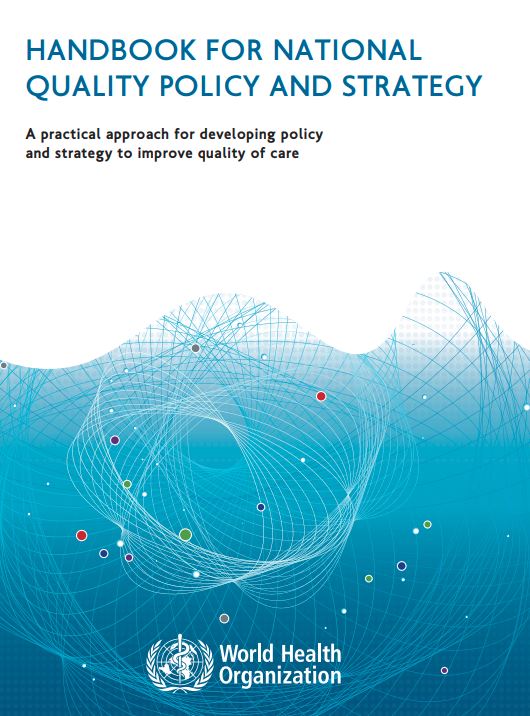
The “WHO handbook for national quality policy and strategy” outlines an approach for the development of national policies and strategies to improve the quality of care. Such policy and strategy can help clarify the structures, roles and responsibilities within national quality efforts, support the institutionalization of a culture of quality, and secure buy-in from health system leaders and stakeholders.
The handbook is not a prescriptive process guide but is designed to support teams developing policies and strategies in this area, and very much recognizes the varied expertise, experience and resources available to countries. It outlines eight essential elements to be considered by teams developing national quality policy and strategy: national health goals and priorities; local definition of quality; stakeholder mapping and engagement; situational analysis; governance and organizational structure; improvement methods and interventions; health management information systems and data systems; quality indicators and core measures.
The NQPS handbook was co-developed with countries each finding themselves at different stages of the development and execution of national quality policies and strategies and was informed by the review of a sample of more than 20 existing quality strategies across low-, middle- and high-income countries globally.
